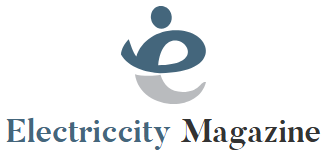Posted
Stockholm EU seeks consensus to increase migrant deportations
EU countries want to increase income from irregular migrants, including by targeting “uncooperative” countries of origin.

(illustrative photo).
Reuters
EU interior ministers are due to meet in Stockholm on Thursday to discuss ways to increase the flow of irregular migrants to their home countries, including further restricting visas to citizens of “non-cooperative” countries.
“We are seeing an increase in irregular arrivals. Repatriation of those denied asylum is a very important issue in Europe,” said Maria Malmar Stenergaard, Migration Minister of Sweden, whose country holds the six-month presidency of the Council of the European Union.
“Very Low Rate of Return”
Of the roughly 340,500 “return” decisions issued in European countries in 2021, 21% were actually implemented, according to Eurostat data cited by the commission. “We have a very low turnover rate. We can see progress in increasing their numbers and speeding them up,” commented Ylva Johansson, the European Home Affairs Commissioner who attended the meeting.

Swedish Immigration Minister Maria Malmar Stenergaard (left), European Commissioner for the Interior Ylva Johansson (c.) and Swedish Justice Minister Gunnar Strommer on January 26, 2023.
AFP
Target non-cooperative countries
At the European level, a mechanism for third countries to use visas as a lever to take back their nationals came into force in 2020. The Swedish Presidency of the Council of the European Union considers it “important to exploit the full potential of this mechanism”. “There are few third countries that can quickly take steps to improve the current inadequate level of cooperation”, he believes in a preparatory document for the meeting.
But Germany has expressed its “reservations” on the matter. Interior Minister Nancy Fesser noted that she particularly favors making migration agreements with North African countries, “allowing legal channels (of migration) on the one hand and effective repatriation on the other.”
The threat of sanctions
Currently only one country, Gambia, is subject to the EU sanction for “non-cooperation”: the conditions for issuing visas to the Schengen area for citizens of this country have been tightened and the rights have been increased to 120 euros (against 80 on average) . The commission proposed restrictive visa measures against Iraq and Bangladesh in 2021.
Commissioner Johansson, who visited Dhaka in November, said the threat of sanctions had prompted Bangladesh to cooperate. The country’s authorities are now “politically open to the return of all their nationals,” he assured a press conference on January 19.
In December 2021, EU heads of state and government called for “all relevant European instruments, including development aid, trade and visas” to be used as “leverages” on migration.
Don’t miss any message
Stay up-to-date on your favorite topics and never miss a news item, subscribe to our newsletter and get the day’s top news straight to your inbox.
(AFP)

“Avid gamer. Social media geek. Proud troublemaker. Thinker. Travel fan. Problem solver.”
